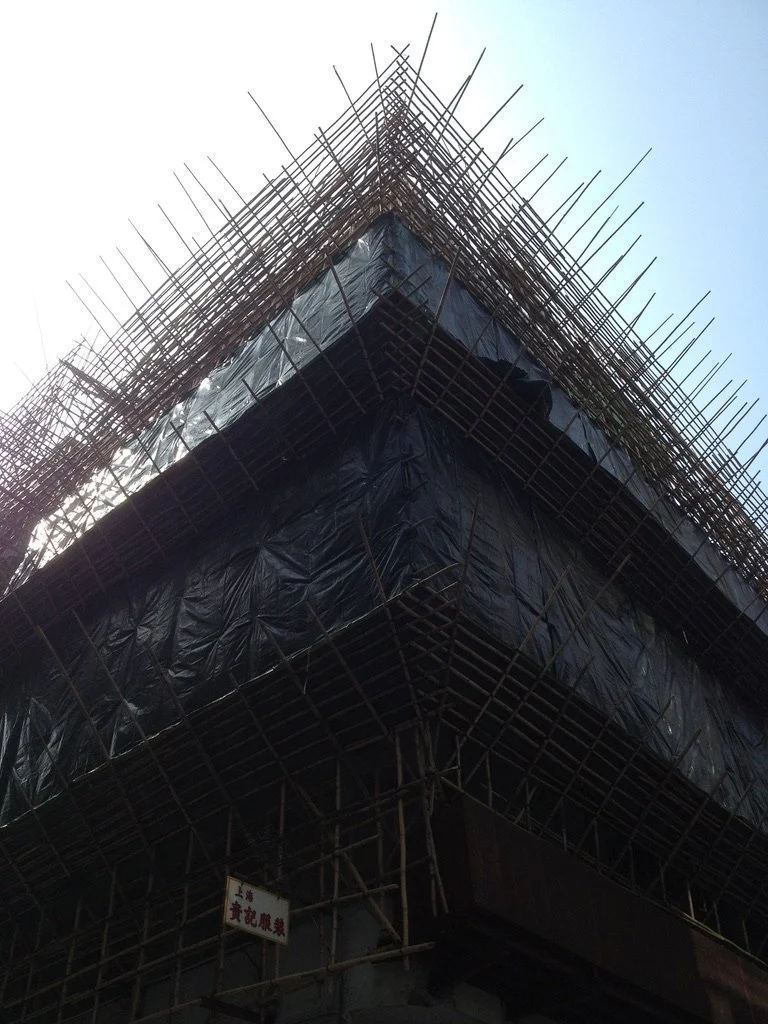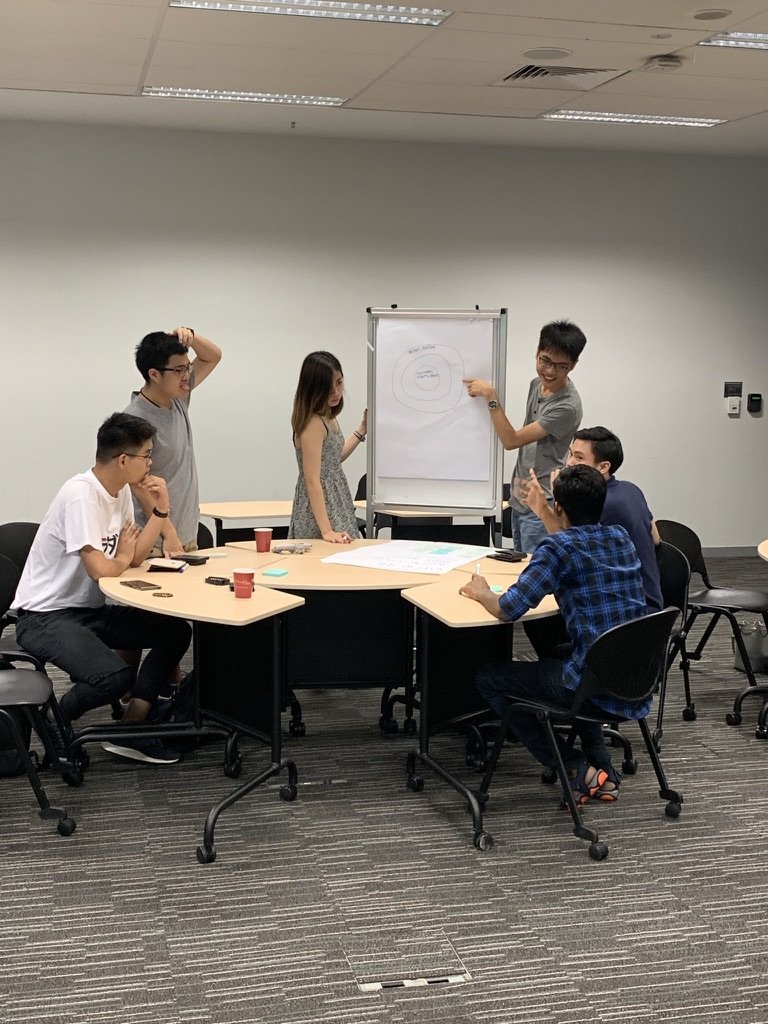A personal statement…
On March 11, 2022 I was accepted to Columbia University's Teachers College Masters of Psychology. I’m happy to share that I will be starting the degree starting in Fall 2022.
The application process seemed to flow. I enjoyed the process of writing my personal statement and wanted to share it here:
"To create beauty in the
world and in others."
This was my aspirational personal mission statement as I completed my undergraduate studies in architecture and moved into the working world. Little did I know that this statement would lead me from an external focus to an internal awakening in my life, turning this mission inside out.
The road charted from this statement has been winding: in 2014, I was a closeted gay man, coming out of a childhood in an evangelical Christian missionary family in China. I was struggling to come to terms with a betrayal of the church I experienced in college and how my identiy as a queer man could be reconciled with the mission of a religion that rejected me. My heart abandoned my religion, and I started a search for a way to create beauty on my own.
In a crowded Architecture studio at the University of Hong Kong, twenty-one-year-old Michael sits at his desk, surrounded by the works of Kenzo Tange and Kisho Kirokawa. After three years of designing physical spaces and buildings for megacities in Asia, the distance between the promise of the architect’s impact and the reality of the role became unbearable. The practice seemed to prioritize commercial endeavors, real estate valuation and construction cost optimization instead of serving the human needs of safety and connection (even further exemplified in the caged homes and umbrella uprising of Hong Kong's struggling middle class).
With long hours and without a living wage, neither the industry, nor the practice of architecture seemed to do good for humans.
I started yearning for a place where I could see interactions happening to people in real time, observe behaviors and optimize them to make a tangible difference; while working in a way that didn’t jeopardize the life of the practitioner.
Bringing design thinking and the study of human spaces with me, my quest led to becoming a user experience designer. This digital design medium gave me a flicker of hope to be able to bring benefits to the users of our products. Naively, I thought, “Maybe now I can enact change in the world, because I’m deciding the features in our products.” But the success of my products and control over the outcomes didn’t answer the deeper questions. I was creating spaces, experiences and products for humans, but something felt distinctly devoid of life.
This work required attention and study of human behavior: users, stakeholders and teams; but I began to suspect the role of organizations, and my role in them could surely be something more. Building products for people wasn’t enough, I needed to work directly with people.
In 2017, I began working for a technology company called Pivotal Labs, with the objective to help develop practices and behaviors within our Fortune 500 clients' technology departments. No longer was I in control of the backlog or features, nor was I the lead decision maker on how we could best achieve our goals. Instead, I modeled these practices for others to learn; and had to build team culture so that these individuals could successfully continue building products without me.
My work began to focus on how to enact change in my peers and clients. To help enable others, it seemed that I needed to transform myself. Although I started to see how my own internal growth and approach could cause change in others; I wouldn’t understand how or why, until a few years later.
Yet even with this incredible insight, my work continued to disappoint. The implementations of skills and practices alone didn't seem to be enough to drive meaningful change: it needed something deeper, something personal.
Up until this point, I made moves that seemed to “make sense” strategically: what my society, my industry or maybe even what my family would expect; but these moves didn’t come from inside of me. In 2020 that changed; at the heart of the pandemic, I founded a non-profit to financially support artists impacted by COVID-19. In looking for ways to facilitate these groups, and better inspire the creation of art during this time, I was introduced to a facilitation methodology called Lewis Deep Democracy. The practice goes beyond group work and introduces deeper change. Originally, I started training in the Lewis Deep Democracy method thinking that I was going to learn how to encourage change in others; but I began to see that this work triggered change with the most important person first, my Self.
This experience illustrated that truely, “I am human, so nothing human is alien to me” (Terence). I saw increased group awareness of the unconscious; and a light into my own personal patterns and unconscious processes. Suddenly, my sexuality, my belief system and my own awareness was important and impacted the group. Facilitation work, in combination with my personal growth work (talk therapy and meditation), started an awakening in me. These realizations, paired with the hard skills I developed as an architect, designer and product manager have allowed me to connect the dots:
Human change and betterment is possible, and starts with the self.
My own psychology impacts everything in my life: the conversations I have, the business decisions I make and the experiences or products I create. The problem I kept running into was that this striving to create beauty in the world for others always started from something outside of myself: my parent’s religion, my society’s expectations or a business’ bottom line. But the secret to fulfilling the mission statement I wrote way back at architecture school was with me all along: myself. As Columbia’s Dr. Lisa J. Miller says, “This awakened brain is the neural circuitry that allows us to see the world more fully and thus enhance our individual, societal and global wellbeing.”
I finally started to build my own path, my own spirituality and my own way to create impact in the world.
Just as I took this winding road into myself over the past ten years, I’m convinced that the Masters of Arts in Psychology degree will serve as a trail-marker for the journey back out into the world. Through the study of human behavior with this program, I will discover data-informed ways for transformation that allow for spirituality, personal growth and human fulfillment in the hearts of users, individuals, teams and organizations.
My goal is that this degree will help bring a deeper scientific, psychological and research lens to inform the products, environments and systems I create in the world as a product manager, designer and architect. Ultimately, it will allow me to fulfill my internal mission and explore an external manifestation of it in varied (and maybe unexpected) new ways.




